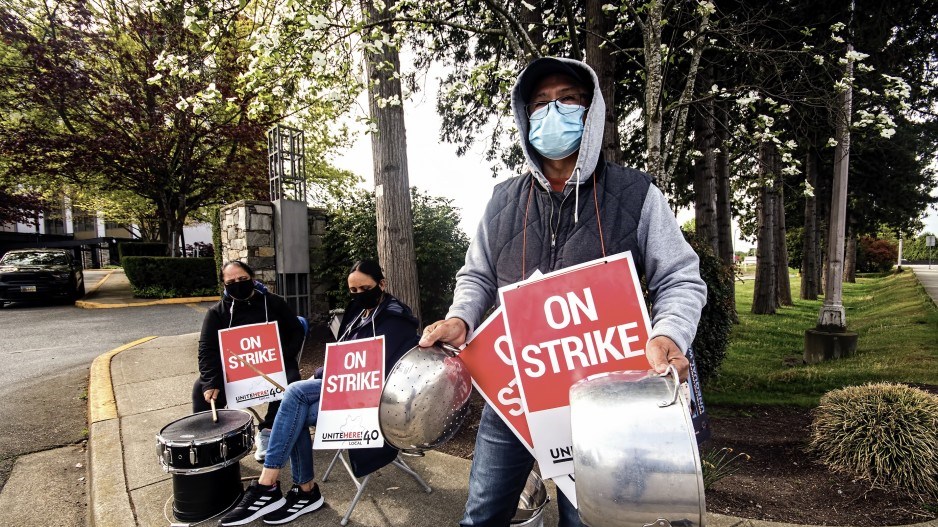Labour disruptions experienced by some industries in the province last year have contributed to a cloudy outlook for B.C. businesses in 2024.
There were 14 work stoppages in the first three quarters of 2023, according to Economic and Social Development Canada, with the most significant being the 13-day summer port strike that was estimated to disrupt $10.7 billion in trade.
In 2024, more than 60 collective agreements will expire in B.C. across private and public sectors, according to B.C.’s Minister of Labour Harry Bains.
Increases in inflation and living costs not only made it more challenging to attract talent to B.C., but also created uncertainty for labour negotiations, according to Mark Thompson, a professor emeritus at the University of British Columbia’s Sauder School of Business.
“The union says, we lost out on inflation in 2022 and early 2023, so we need to make up for that and the employers say ‘Yes, but look 2024 inflation is going down.’ They’re both correct but it makes it hard to agree on things when you’ve got those differences,” said Thompson.
“I think there’s going to be upward pressure on wages, generally, in, British Columbia.”
Despite labour shortages in some industries, Bridgitte Anderson, president and CEO of the Greater Vancouver Board of Trade, said she is concerned there will be an increase in unemployment in 2024, as B.C.’s population grows and the B.C. economy stalls. The Canadian Survey on Business Conditions anticipates no economic growth for 2024.
“In Metro Vancouver alone, we’re expecting 70,000 people, which is like the city of North Vancouver. So we’ve got this huge population boom, but we have an economy that is virtually not growing,” said Anderson.
Construction on three massive infrastructure projects in B.C. – LNG Canada, Coastal GasLink and Site C – is also winding down.
“We’re concerned about where that job growth and where the economic development is going to come from in 2024. And where that next wave of private sector investment is going to provide the growth and the wages that we need for British Columbia,” Anderson said.
Meanwhile, there are several policies that will be implemented or will take in effect in 2024 that could impact the province’s labour market.
This includes the International Credentials Recognition Act that will come into force next summer, and which aims to reduce barriers for internationally trained professionals seeking jobs in B.C. The Future Ready Initiative, which launched last May, provides funding to those receiving training for in-demand jobs, and its effects remain to be seen in 2024.
“And we will continue to increase the minimum wage at the rate of inflation in June,” said Bains.
The province is also launching a labour relations code review panel in early January to look at changes that are needed to upgrade labour laws, and working on providing cleaner toilet facilities for construction workers, added Bains.
“And we are attracting more people through temporary foreign workers protection that we already have in place.… Many companies are looking through temporary foreign worker programs to address their needs.”




